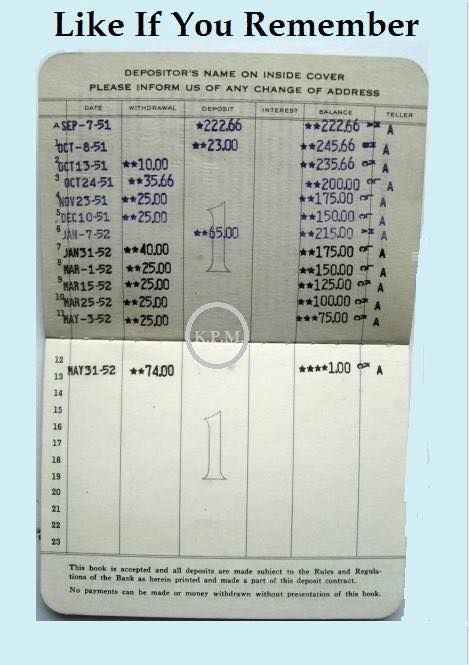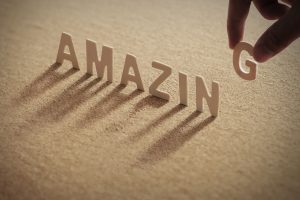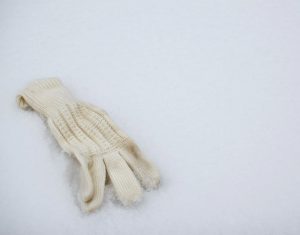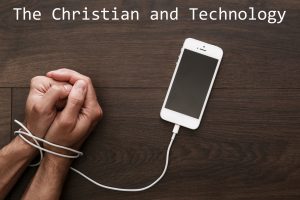put your heart in God
“Do not lay up for yourselves treasures on earth, where moth and rust destroy and where thieves break in and steal, but lay up for yourselves treasures in heaven, where neither moth nor rust destroys and where thieves do not break in and steal. For where your treasure is, there your heart will be also.” (Matthew 6:19-21)
“It’s time for you to start a savings account,” my mom said to me. “Get your cigar box and let’s go to the bank.” We got into the car. On the seat beside me was my cigar box with my life’s savings in it. Totaling the loose nickels, pennies, quarters, and crumpled bills, there was about $6 or $7.
“Put your money in the bank,” Mom said, “It will be safer there.” I nodded like I understood.
I felt grown up walking into the solid-looking savings and loan to make a deposit. The teller smiled at me and I pushed my cigar box through the counter window. “I want to start a savings account,” I said.
“Good for you,” she said, then made a series of crisp movements stacking nickels and dimes, punching keys on an adding machine. It clicked and whirred when she pulled the handle, making it sound like a great deal of money. Finally, she handed me a Savings Account Booklet with my name typed on it and a long number. It came with its own plastic sleeve, all very official.

I put it into my cigar box and we left. Every time I accumulated a few dollars, we would go to the bank and deposit them into my account. The teller would type into my booklet the deposit and any interest earned. As we left the bank, I pictured her walking into the vault, finding the container with my name and number on it and stacking my new money on top of my original deposit of nickels and dimes. There! My money stored safely in the bank.
I had no idea that “my money” wasn’t really on a shelf. It wasn’t in a vault. It wasn’t even in the building. My “money” was just numbers printed in a book. Up to that point, money to me was very solid: pieces of metal and official-looking paper notes. I could feel it, rattle it, and rely on it to be valuable to the clerk I was buying a model airplane from. I had no idea that money was a system, or that the system was built on people agreeing to value something symbolic in order to make trading easier. It was all built on collective trust.
I thought that money—the metal discs and slips of paper—was valuable in and of itself. My treasure was tangible, real and enduring. I was shocked when I found out that my nickels and dimes were thrown into a pile and passed around to who-knows-where. It felt like betrayal. Mom had told me that my money would be safe! And that teller had seemed so nice.
I felt insecure. My treasure was vulnerable. As I grew up, I learned more and more about the system of money, and everything I learned made me feel even more vulnerable.
- In the 70s, I learned about inflation: the numbers on your bills or in your account don’t mean the same thing from year to year.
- In the 80s, I learned about adjustable rate mortgages: they can change your house payment based on factors that are totally not your fault.
- In the 90’s, I Iearned about stock bubbles: you can buy part of a company today and then tomorrow, if people don’t want it, well then, tough luck on you.
- In 2008, I learned about collateralized-debt-obligations: very smart people can actually sell debt and then bundle and re-bundle it until no one knows what they are buying. Then the whole house of cards can come down.
Now the financial system is a marvel of human imagination and resourcefulness; it has the potential to harness the best of humanity. Ideally, a financial system will tap into the collective goodwill of a community and build wealth and opportunity to make things better for everyone. But it also has the possibility to bring out the worst of humanity and create colossal inequality, greed, and theft. The financial system is only as good as the people who use it. Money, as it turns out, is built on trust in people.
That’s why Jesus warns us not to trust something as fickle as money. Use it, learn it, work with it, but don’t base your life’s worth on it. Because money is as fickle and unpredictable as people. Trust in something solid.
Put your heart in God, it will be safe there.
 Roger Edwards joined The Barnabas Center in 1991. He works with both with individuals and couples, helping people confess their need and embrace their available choices to lead healthier lives. Roger also teaches and leads discussion groups and retreats applying the Gospel to everyday life. He is a licensed professional counselor (LPC), holds a master’s degree in biblical counseling from Grace Theological Seminary in Indiana and earned a bachelor’s degree in engineering from the University of North Carolina at Charlotte. He is married to Jean and they have seven children and nine grandchildren.
Roger Edwards joined The Barnabas Center in 1991. He works with both with individuals and couples, helping people confess their need and embrace their available choices to lead healthier lives. Roger also teaches and leads discussion groups and retreats applying the Gospel to everyday life. He is a licensed professional counselor (LPC), holds a master’s degree in biblical counseling from Grace Theological Seminary in Indiana and earned a bachelor’s degree in engineering from the University of North Carolina at Charlotte. He is married to Jean and they have seven children and nine grandchildren.







